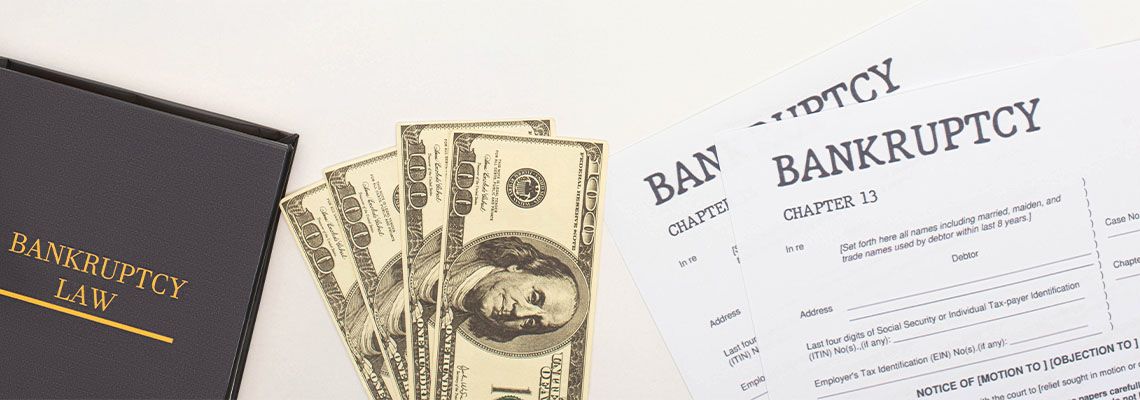
Will I Lose My Retirement Accounts If I File for Bankruptcy?
Running into debt issues can be stressful and confusing. It may be complicated to find the best way out of debt issues. That is why many individuals consider bankruptcy as their best choice. However, there may be concerns about how bankruptcy can affect retirement accounts.
If you need to file for bankruptcy but are concerned about your retirement accounts, reach out to a strategic bankruptcy attorney for legal assistance. Our team at the Bond Law Office can provide the answers you need to make wise decisions regarding bankruptcy and your retirement accounts. We proudly serve clients in Fayetteville, Fort Smith, Harrison, Eureka Springs, Clarksville, Waldron, Mena, and Van Buren, Arkansas.
Retirement Accounts Protected From Bankruptcy
It is crucial when filing for bankruptcy in Fayetteville, Fort Smith, Arkansas, and neighboring areas (The Arkansas River Valley, Harrison, Eureka Springs, Clarksville, Waldron, Mena, and Van Buren) to know which retirement accounts are fully protected from bankruptcy.
Here is a look at fully protected retirement accounts:
401(k)
402(b)
IRA accounts include ROTH, SEP, SIMPLE
Keoghs
Profit-sharing plans
Money purchase plans
Defined-benefits plans
So, why are these accounts protected from bankruptcy?
The law protects these accounts because the income they generate is intended to cover living expenses, especially when individuals can no longer work. During the bankruptcy process, the court will determine if the generated income is enough to cover living expenses or if the income exceeds the required amount.
Additionally, the protected limit for retirement accounts is $1,512,350 per individual. This situation means that if retirement accounts hold more than this amount (for example, $2 million), the court can use the excess amount to cover debt repayment.
Please bear in mind that standard bank and investment accounts are not protected from bankruptcy. As a result, a bankruptcy court can take those funds to pay back creditors.
Retirement Accounts Not Protected from Bankruptcy
While retirement accounts are generally protected from bankruptcy, there are some exceptions.
When filing for chapter 7 bankruptcy, the bankruptcy court considers retirement account payouts and benefits as income. As such, the court determines if the income is enough to cover living expenses. If the court deems this income to exceed living expenses, the court can attach that income to repay creditors. Please remember that chapter 7 bankruptcy aims to restructure debt or extend repayment periods so that debtors can meet their financial obligations. Qualifying debt may be removed from debtors’ liabilities (i.e., credit cards, personal loans, or consumer debt).
When filing for chapter 13 bankruptcy, debtors seek to build a repayment plan. As a result, chapter 13 does not seek to eliminate debt from the debtor’s liabilities. Instead, chapter 13 bankruptcy aims to create favorable repayment conditions. Consequently, bankruptcy courts can determine how much of the retirement income can be used to repay creditors. The court restructures debt based on these calculations allowing debtors to honor their debts.
Retirement Benefits as Income
Please note that retirement accounts are generally safe from bankruptcy as long as individuals do not receive income from such accounts. For example, a working-age individual contributing to a 401(k) should not expect the court to use those funds to cover debt unless it exceeds the maximum threshold.
Nevertheless, the situation changes when individuals receive income from their retirement accounts. For instance, a retired individual receives a monthly payment from their 401(k). In this scenario, the court can use this income to restructure debt in a chapter 13 bankruptcy filing.
Similarly, the court can determine if the retirement income is enough to cover debts before discharging liabilities during a chapter 7 bankruptcy filing.
Getting Legal Advice From a Bankruptcy Attorney
A good rule of thumb is to consult with a bankruptcy attorney before filing. A practiced bankruptcy attorney can guide individuals on the best course of action. In doing so, folks can make an informed decision before filing for chapter 7 or chapter 13 bankruptcy protection.
At the Bond Law Office, we strive to deliver outstanding service. We work with our clients to find the best solution to their debt issues.
Contact us today to talk to a knowledgeable bankruptcy attorney before filing. We have the best solution for your needs.
